T H E A T L A S O F P E T E R S C H L E M I H L
introduction to the work
‘The Atlas of Peter
Schlemihl’ is a collection of works inspired on a book. In 1814 Albert von Chamisso wrote Peter Schlemihl’s Miraculous Story as a cautionary children’s tale. The story is about a
man who makes a trade with the devil; his
shadow in exchange for a bottomless wallet.
Schlemihl quickly learns he has been tricked, without
a shadow there is no acknowledgement of his existence. He is frowned upon by society, the woman he loves rejects him. He becomes buried
with guilt and regret.
After a long period of grief and exclusion, Schlemihl
breaks all ties with civilization. He escapes into nature searching for the peace of mind that was bartered
away. With the aid of seven-league boots, he travels the world studying everything concerned with fauna and flora. In the end, he finds communion with his own better self and dies a
satisfied man.
This work
invites the viewer to enter Peter Schlemihl’s Atlas. The flower
arrangements represent the character’s dark phase,
when light was shunned in
order to hide the lack of a shadow.The utopian
landscapes visualize the start of Schlemihl’s refuge into nature. The black and
white photographs are hand coloured with paint. This action
symbolizes the colours that grew back in front of his eyes when the feeling of
happiness returned. The chemigrams refer to the time when the story was
written. During the nineteenth century, poetry and philosophy were impregnated
with scientific thought. Based on the plants that occur in the publication, Peeters
created alchemic imprints.
‘The Atlas of Peter
Schlemihl’ is a collection of works inspired on a book. In 1814 Albert von Chamisso wrote Peter Schlemihl’s Miraculous Story as a cautionary children’s tale. The story is about a
man who makes a trade with the devil; his
shadow in exchange for a bottomless wallet.
Schlemihl quickly learns he has been tricked, without a shadow there is no acknowledgement of his existence. He is frowned upon by society, the woman he loves rejects him. He becomes buried with guilt and regret.
After a long period of grief and exclusion, Schlemihl breaks all ties with civilization. He escapes into nature searching for the peace of mind that was bartered away. With the aid of seven-league boots, he travels the world studying everything concerned with fauna and flora. In the end, he finds communion with his own better self and dies a satisfied man.
This work invites the viewer to enter Peter Schlemihl’s Atlas. The flower arrangements represent the character’s dark phase, when light was shunned in order to hide the lack of a shadow.The utopian landscapes visualize the start of Schlemihl’s refuge into nature. The black and white photographs are hand coloured with paint. This action symbolizes the colours that grew back in front of his eyes when the feeling of happiness returned. The chemigrams refer to the time when the story was written. During the nineteenth century, poetry and philosophy were impregnated with scientific thought. Based on the plants that occur in the publication, Peeters created alchemic imprints.
Schlemihl quickly learns he has been tricked, without a shadow there is no acknowledgement of his existence. He is frowned upon by society, the woman he loves rejects him. He becomes buried with guilt and regret.
After a long period of grief and exclusion, Schlemihl breaks all ties with civilization. He escapes into nature searching for the peace of mind that was bartered away. With the aid of seven-league boots, he travels the world studying everything concerned with fauna and flora. In the end, he finds communion with his own better self and dies a satisfied man.
This work invites the viewer to enter Peter Schlemihl’s Atlas. The flower arrangements represent the character’s dark phase, when light was shunned in order to hide the lack of a shadow.The utopian landscapes visualize the start of Schlemihl’s refuge into nature. The black and white photographs are hand coloured with paint. This action symbolizes the colours that grew back in front of his eyes when the feeling of happiness returned. The chemigrams refer to the time when the story was written. During the nineteenth century, poetry and philosophy were impregnated with scientific thought. Based on the plants that occur in the publication, Peeters created alchemic imprints.
images
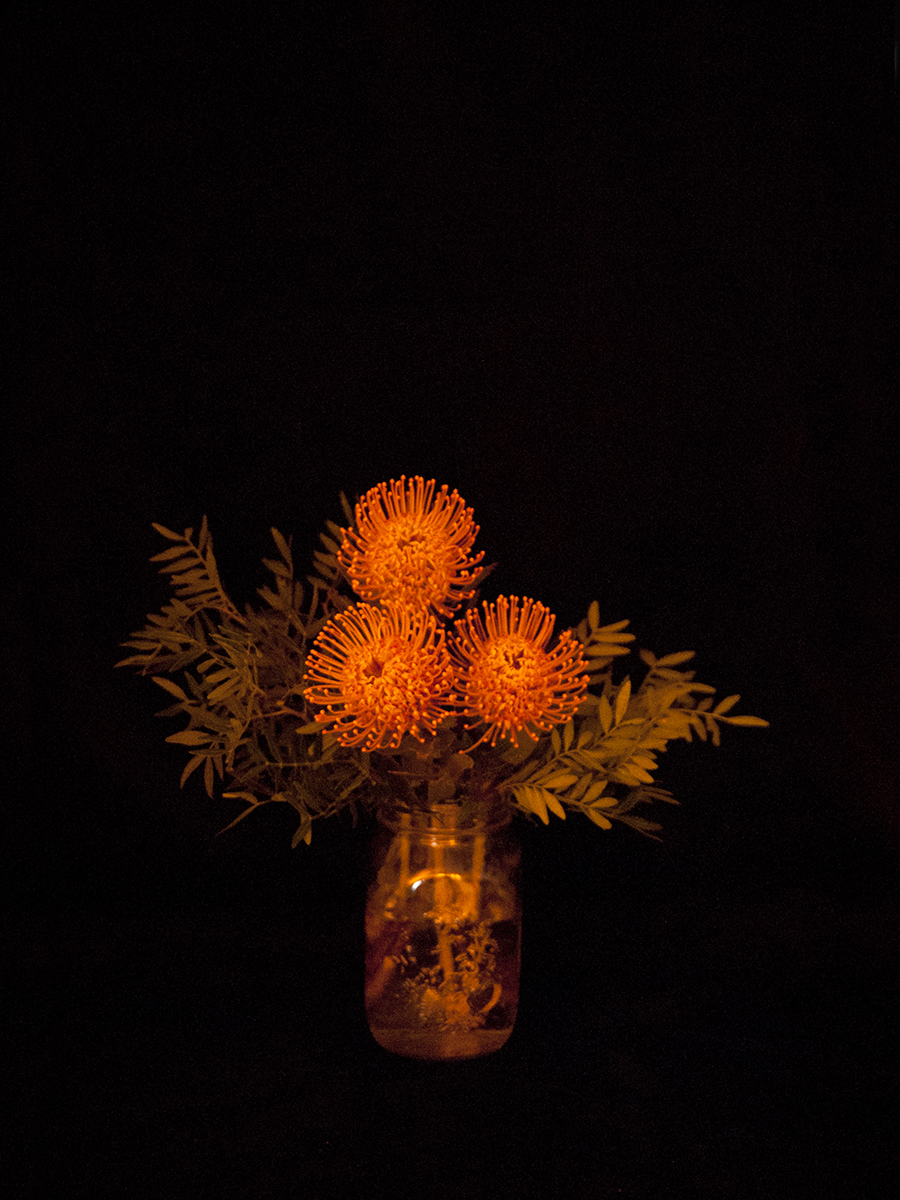
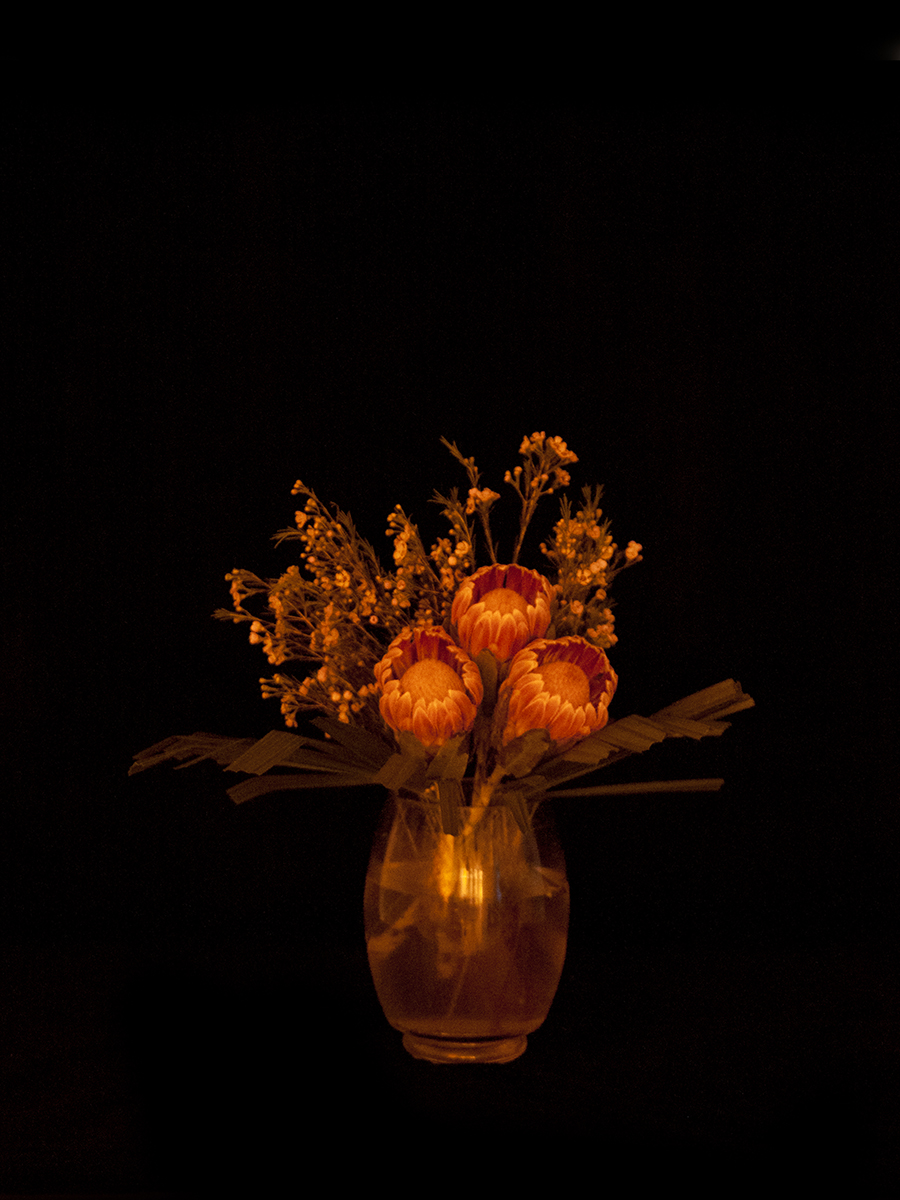
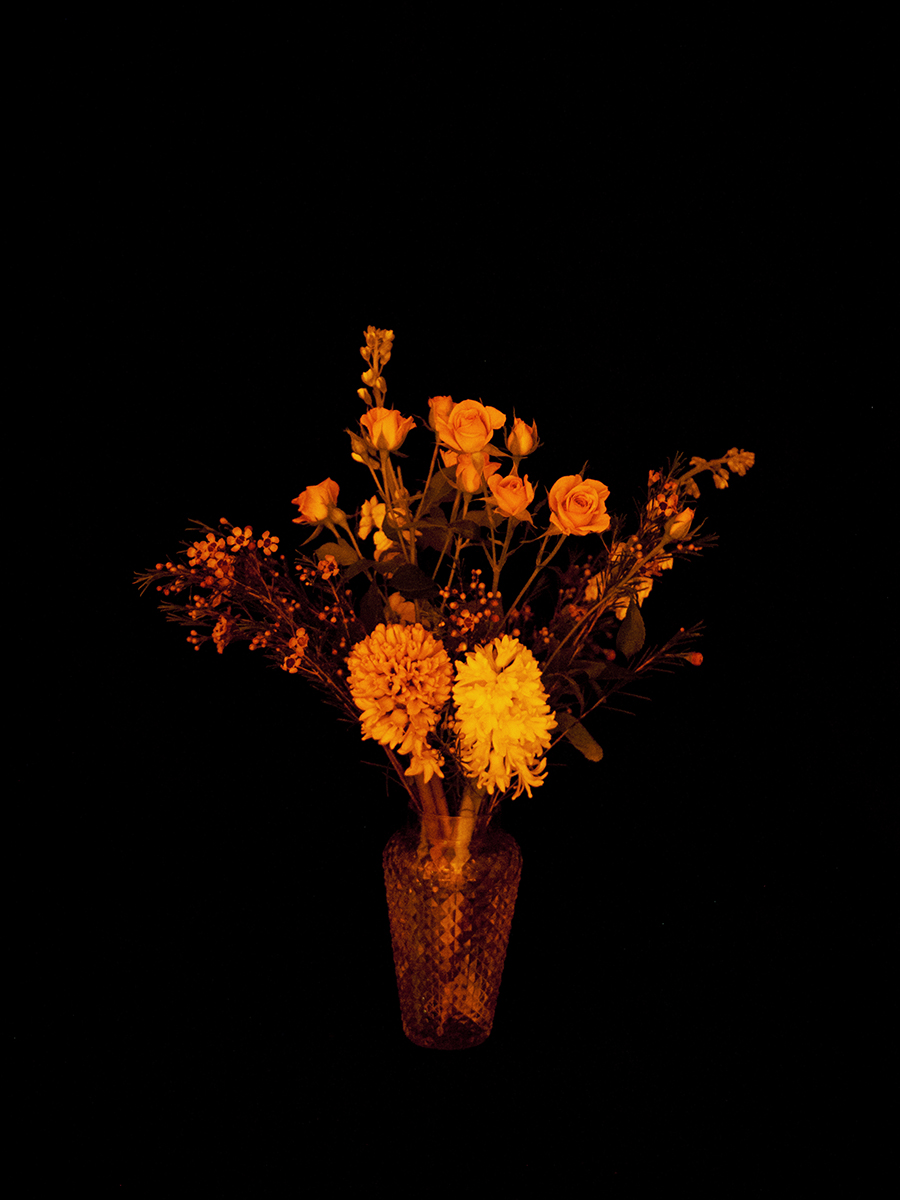
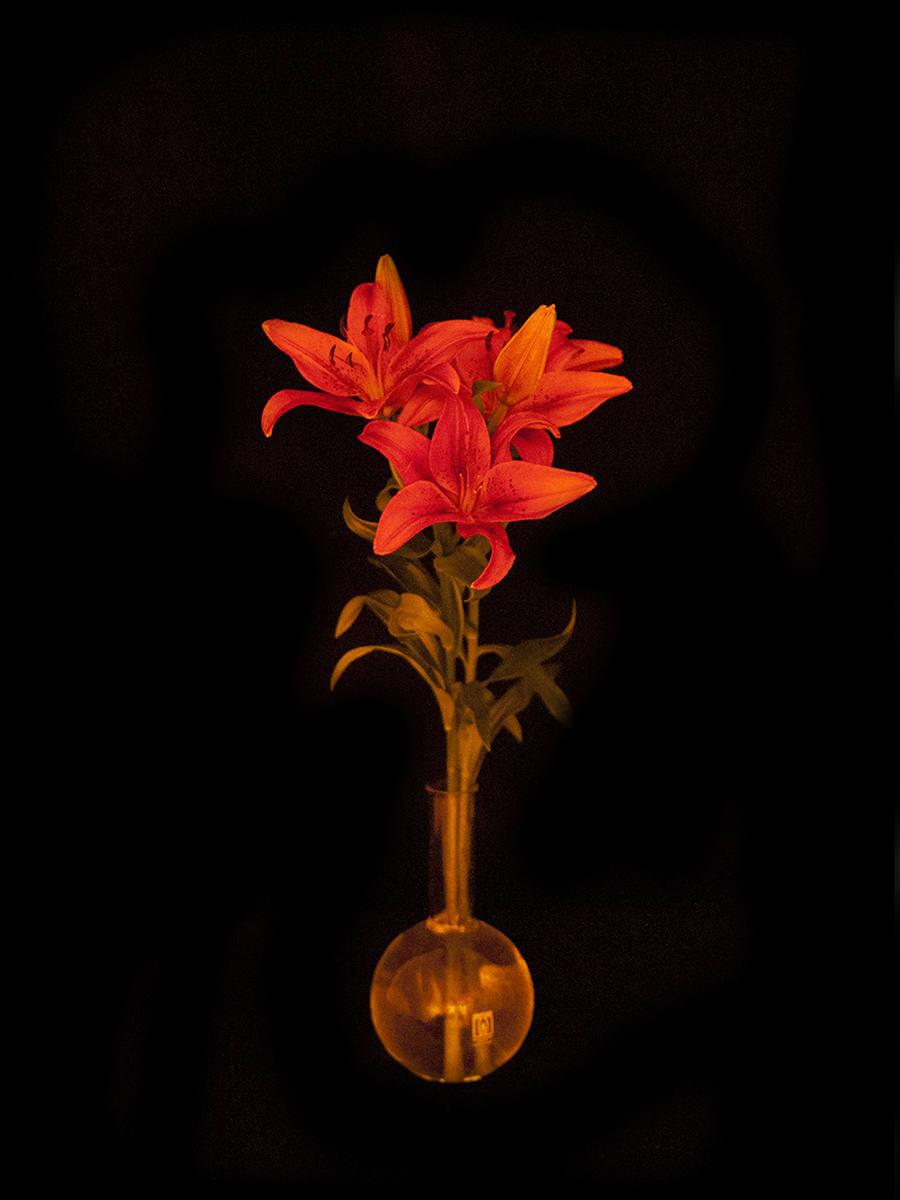
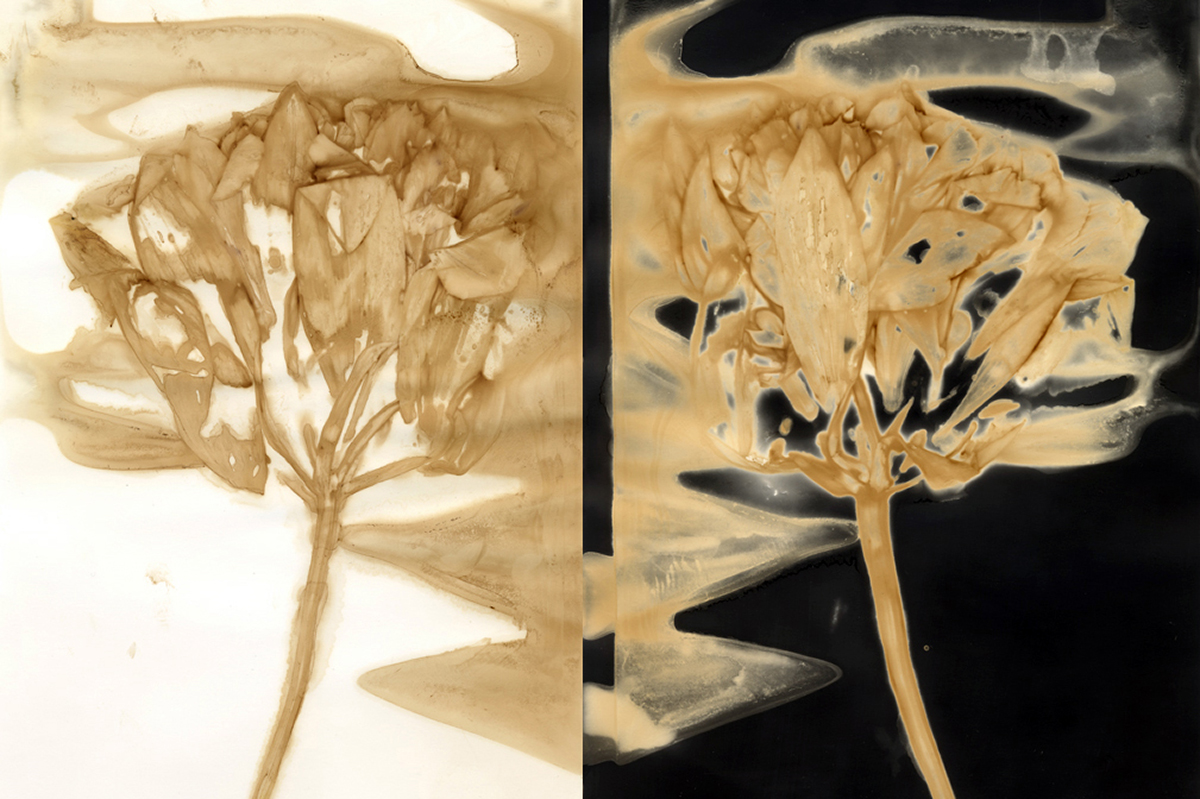
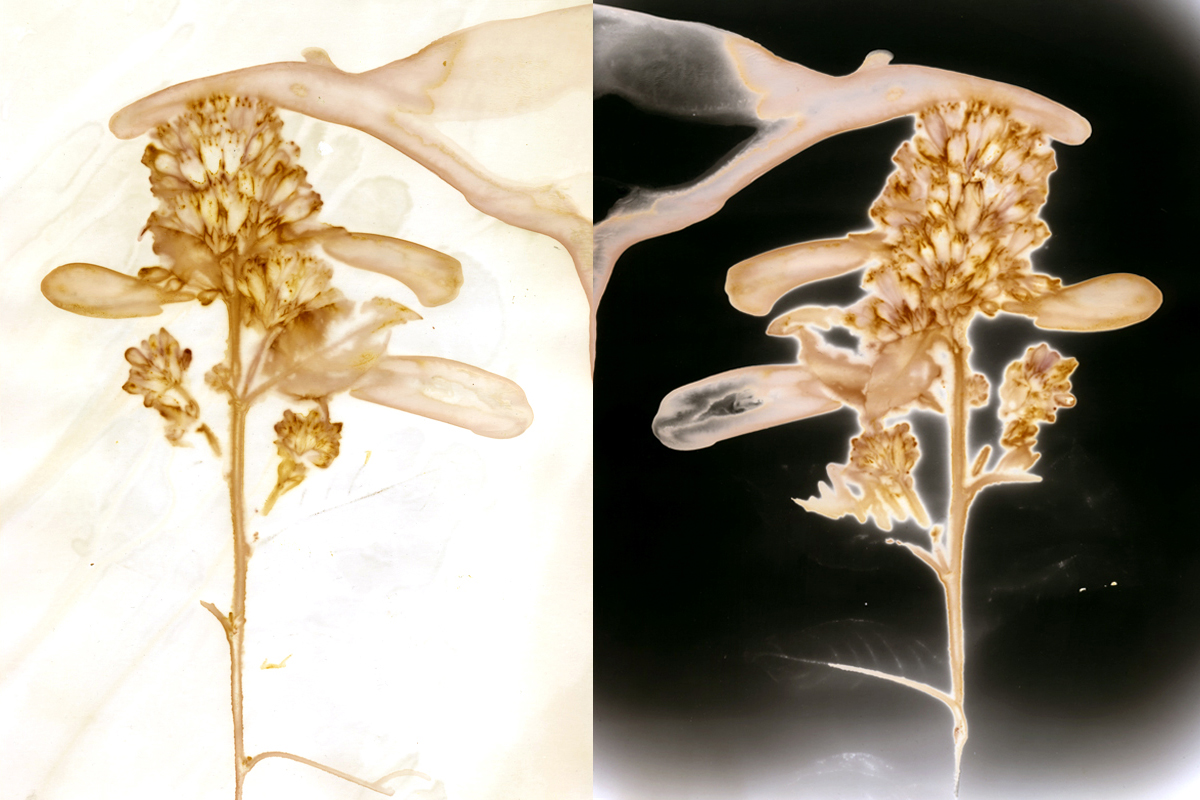
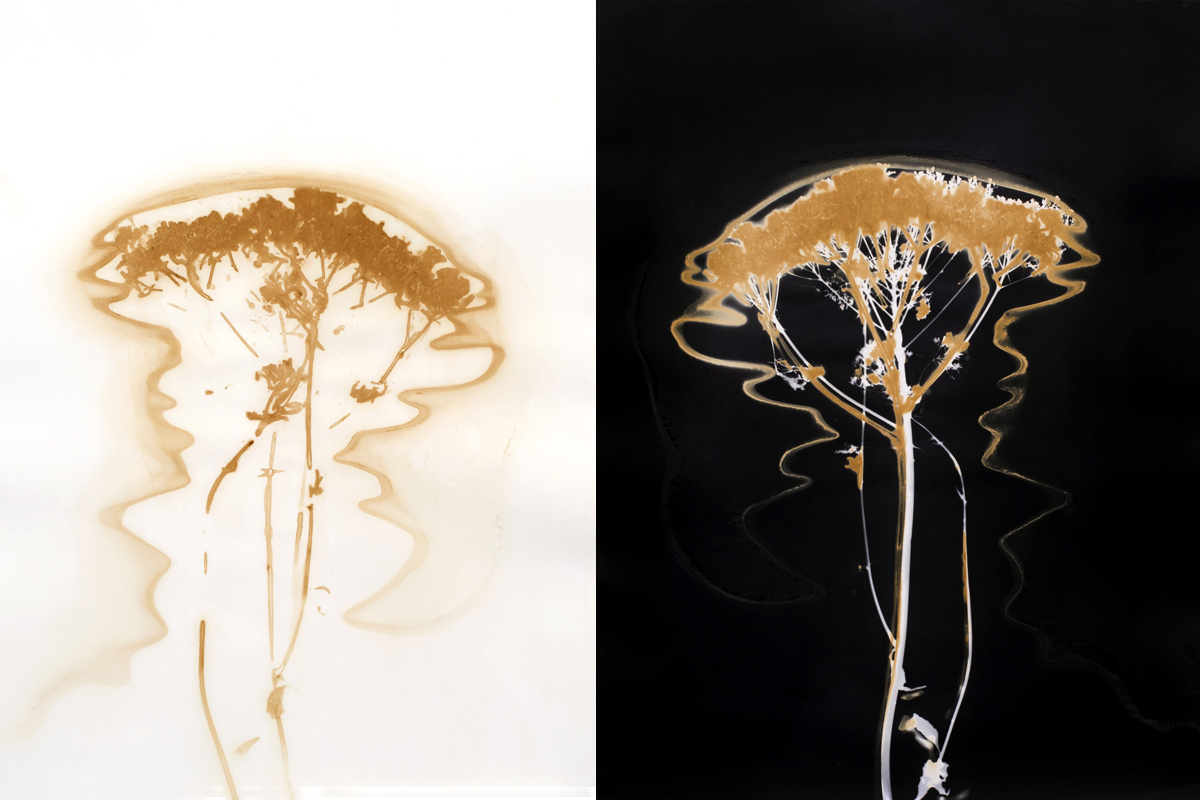
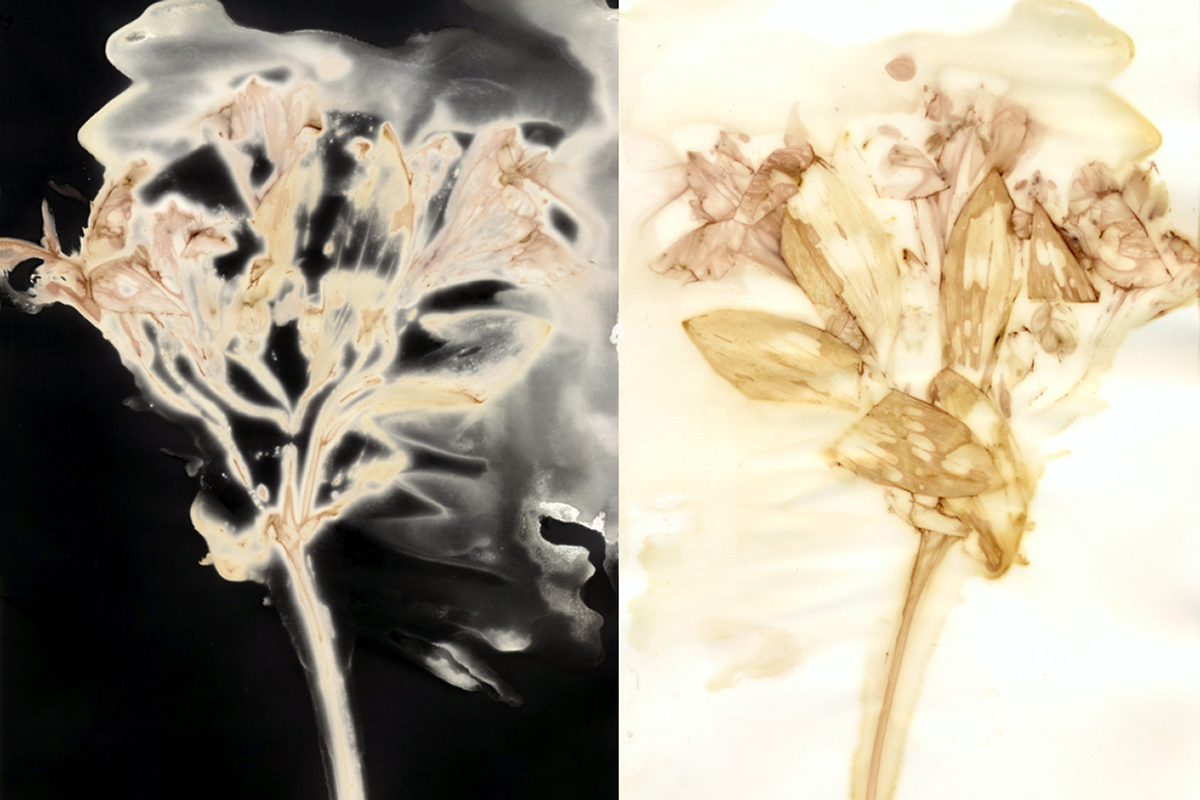
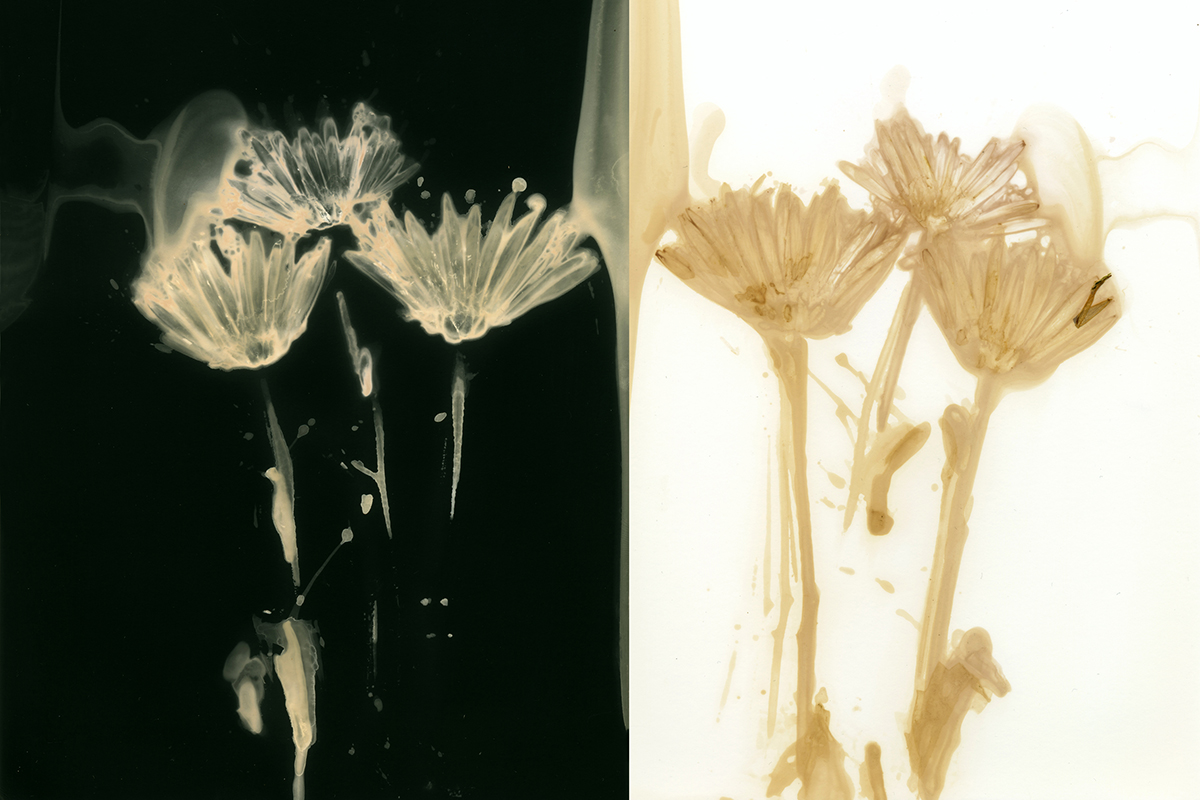

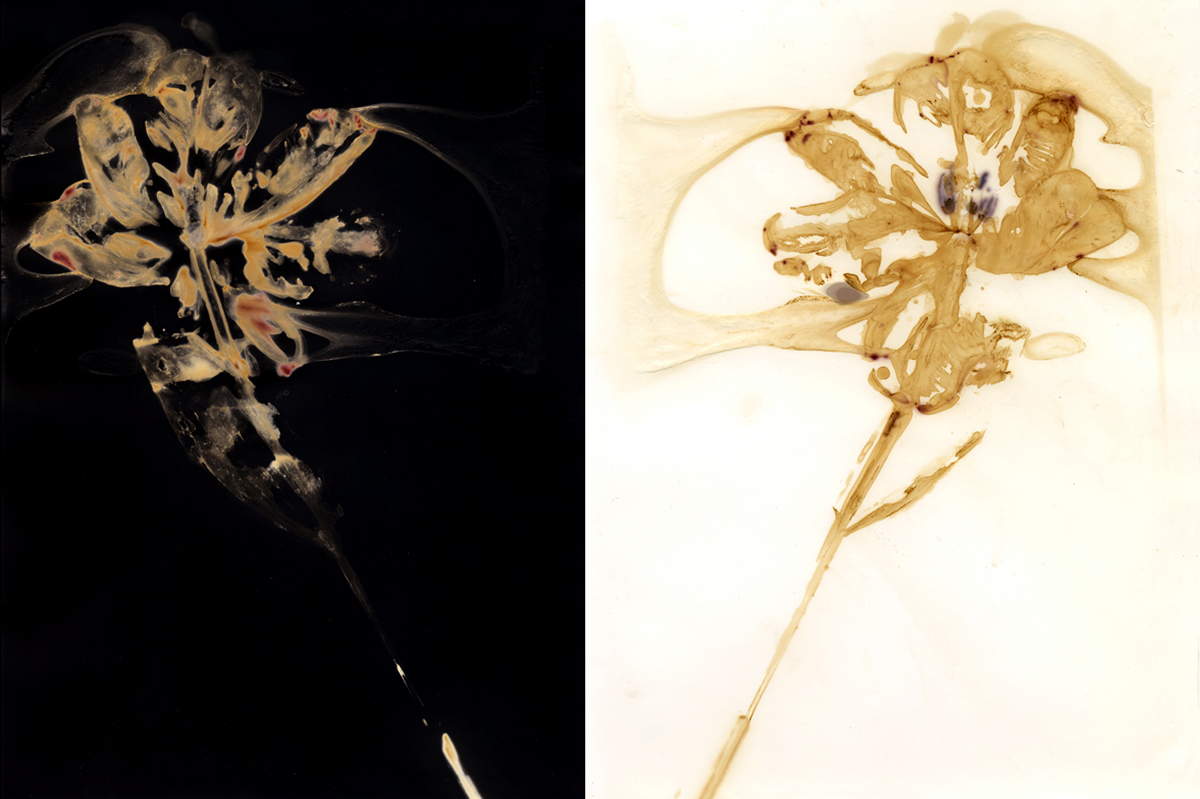
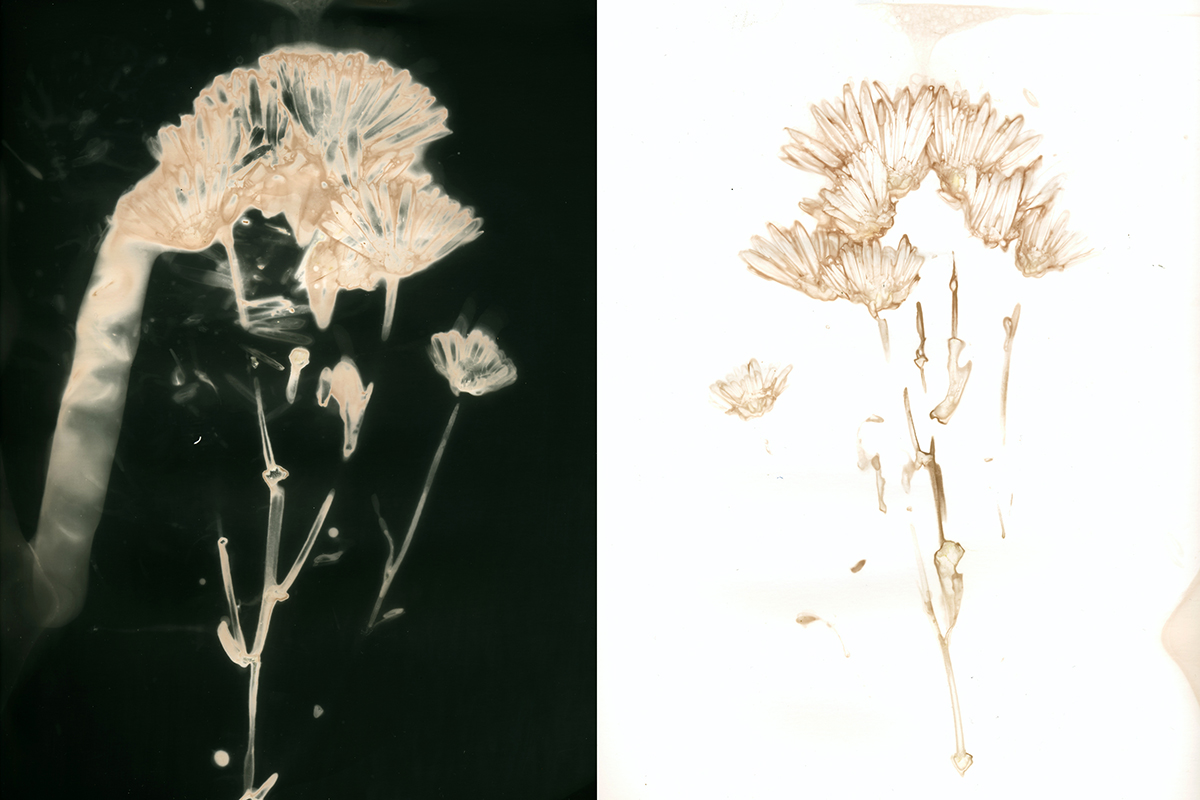
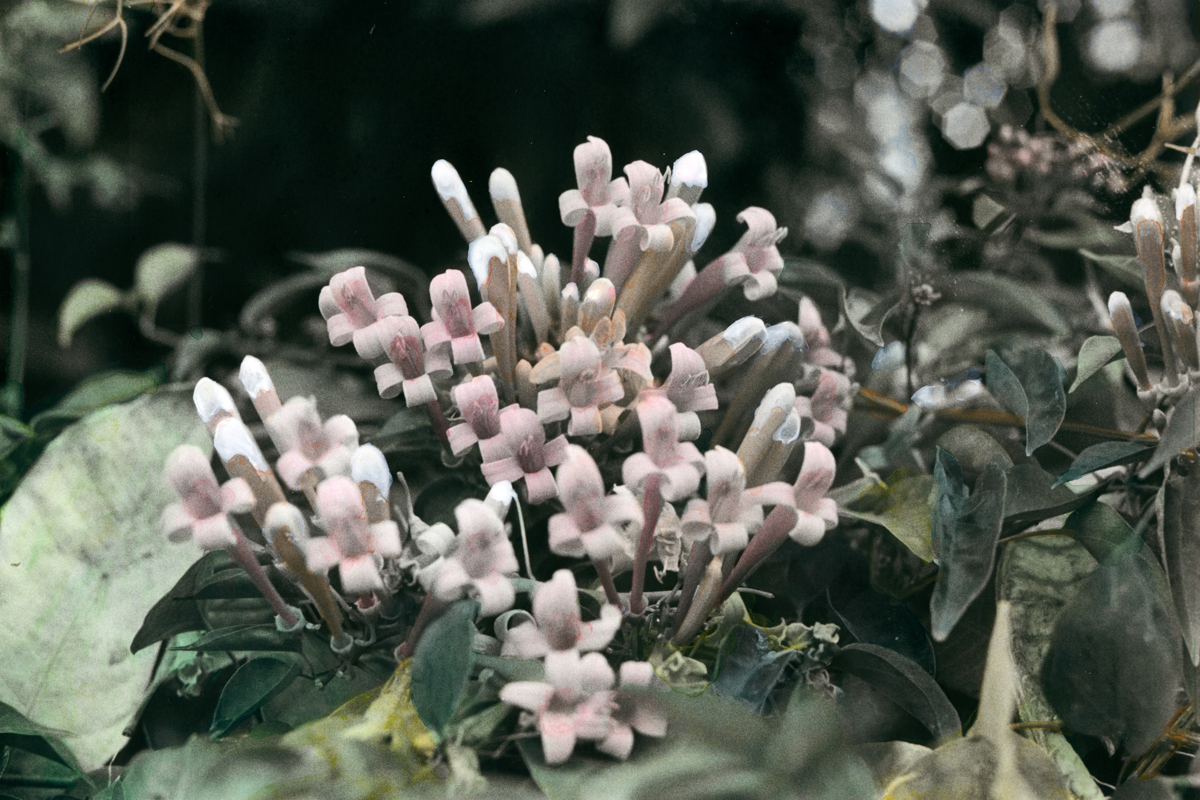
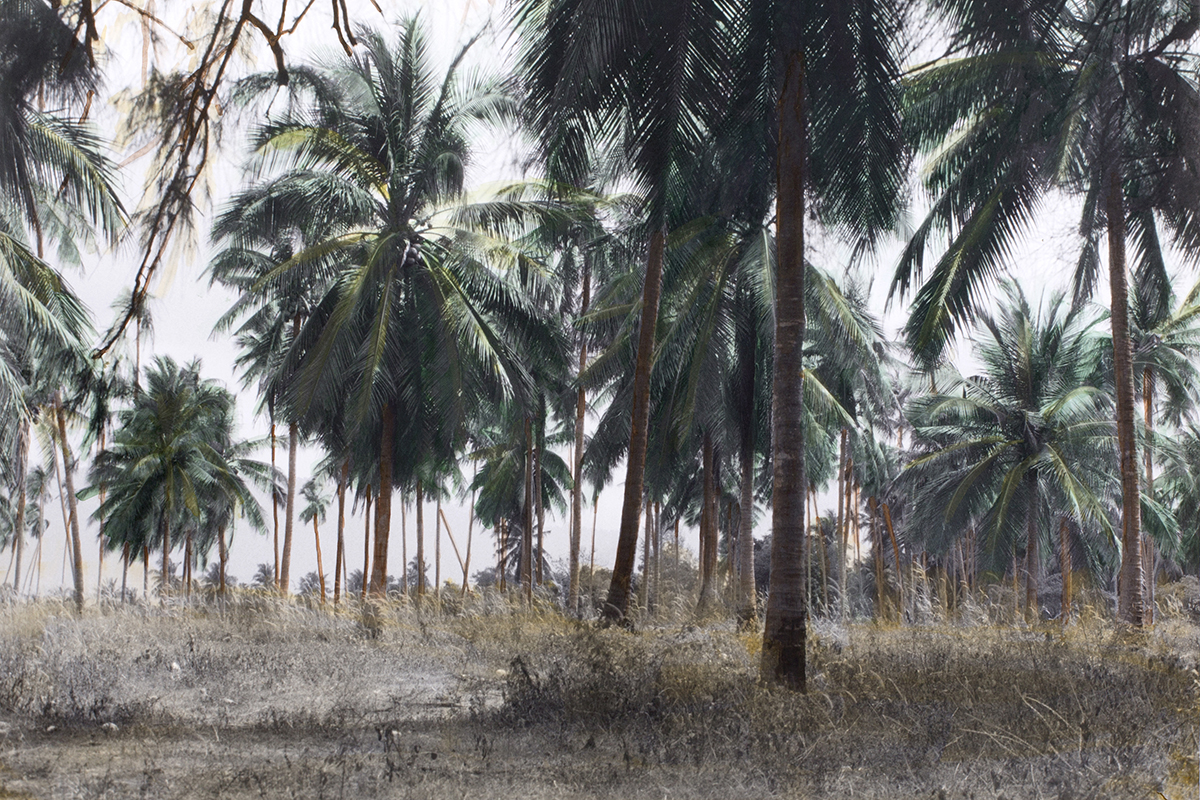
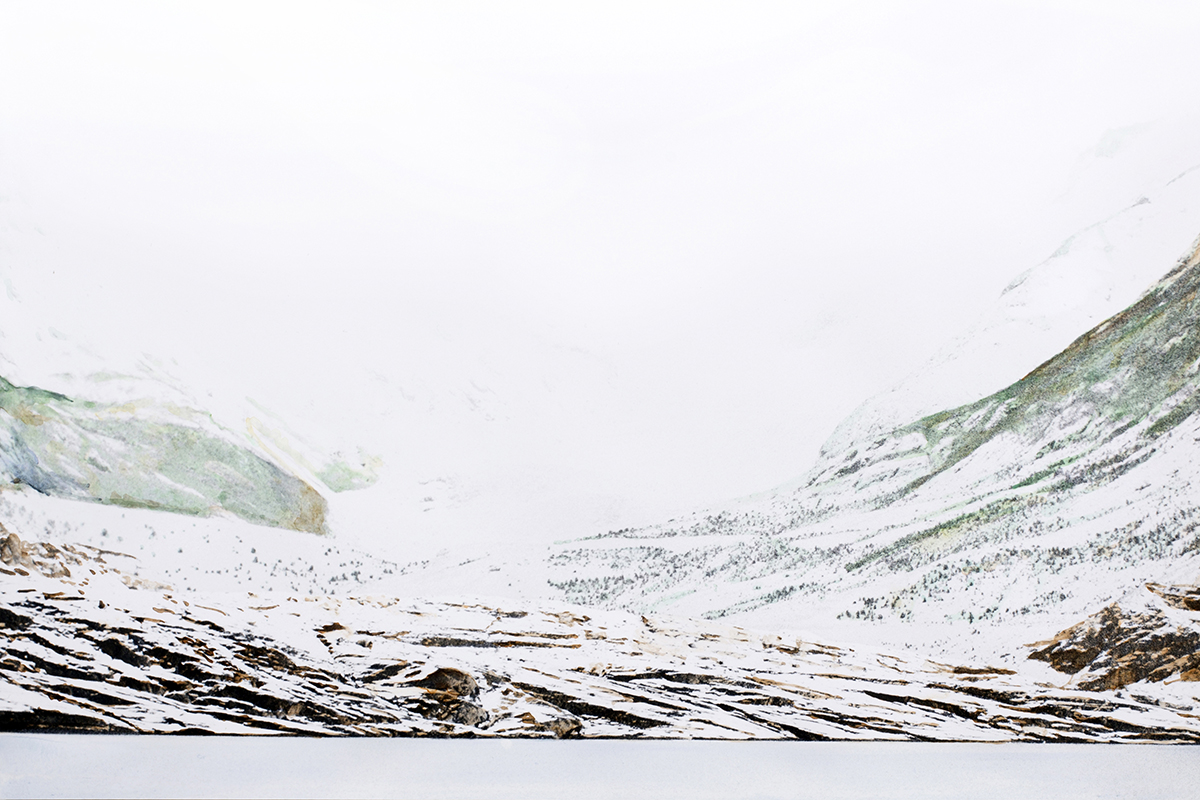

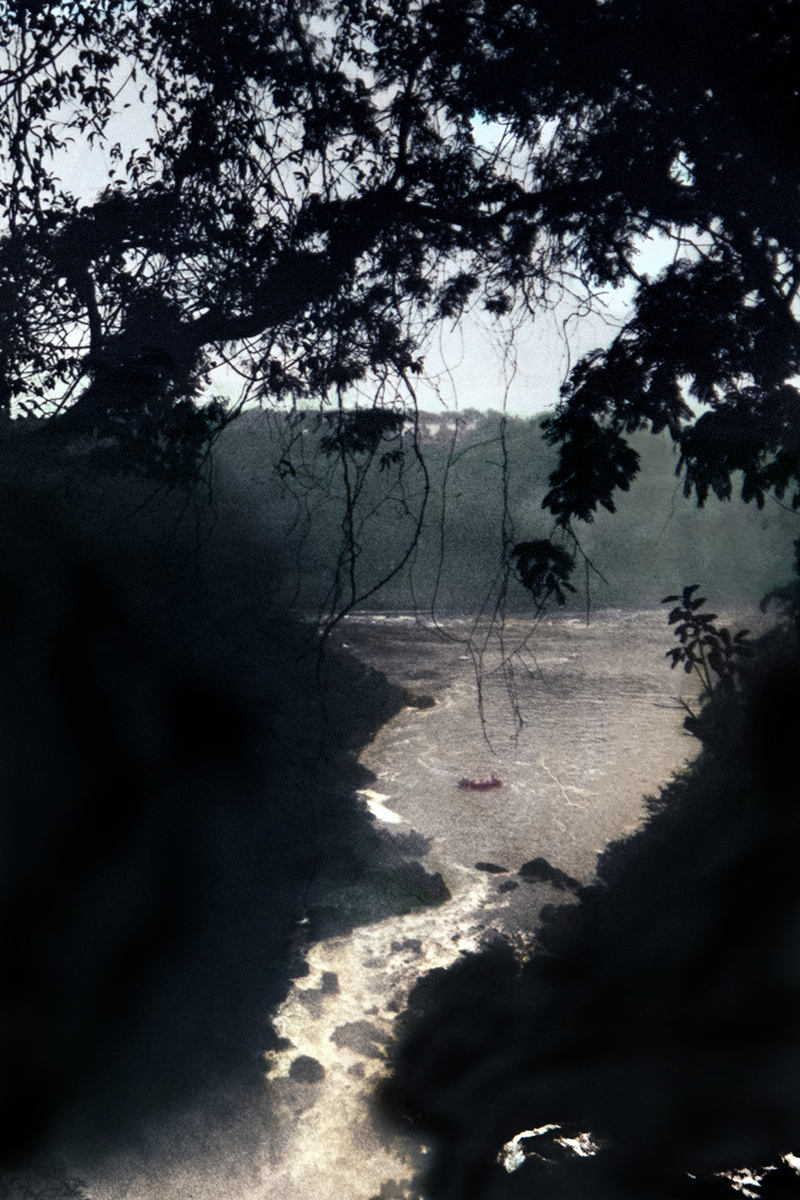
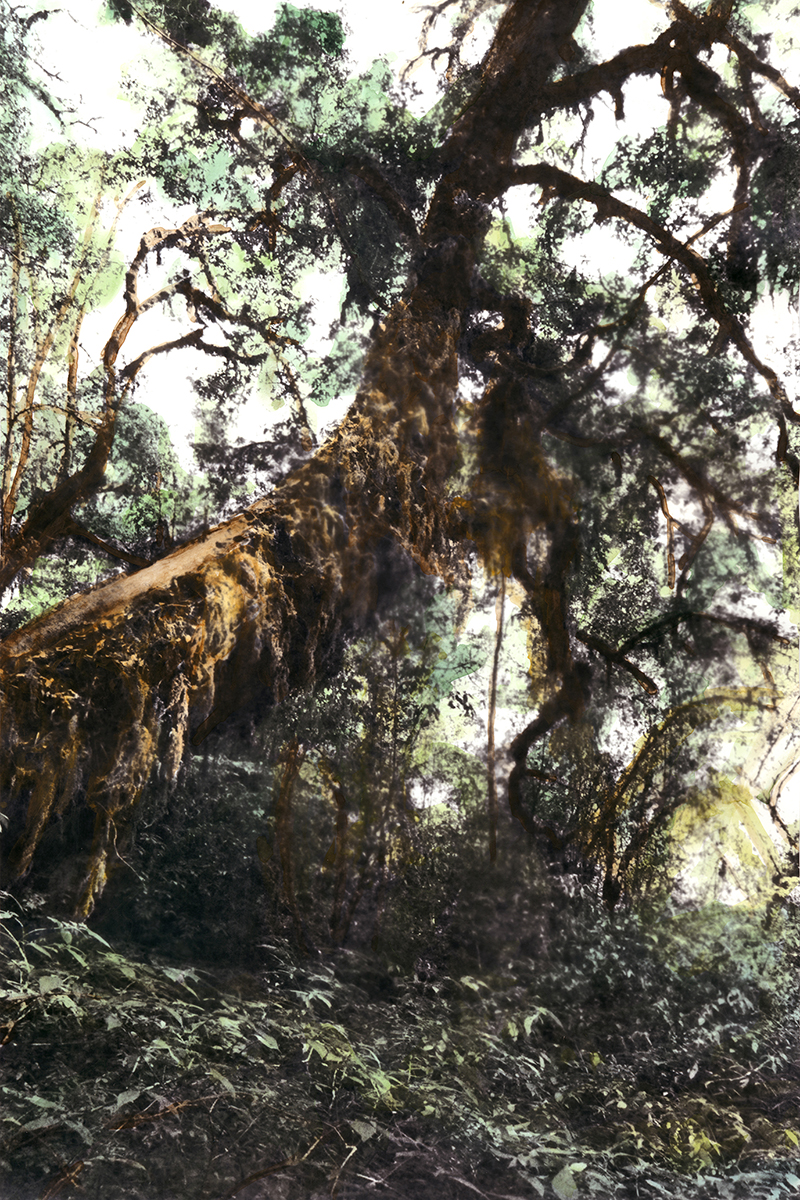
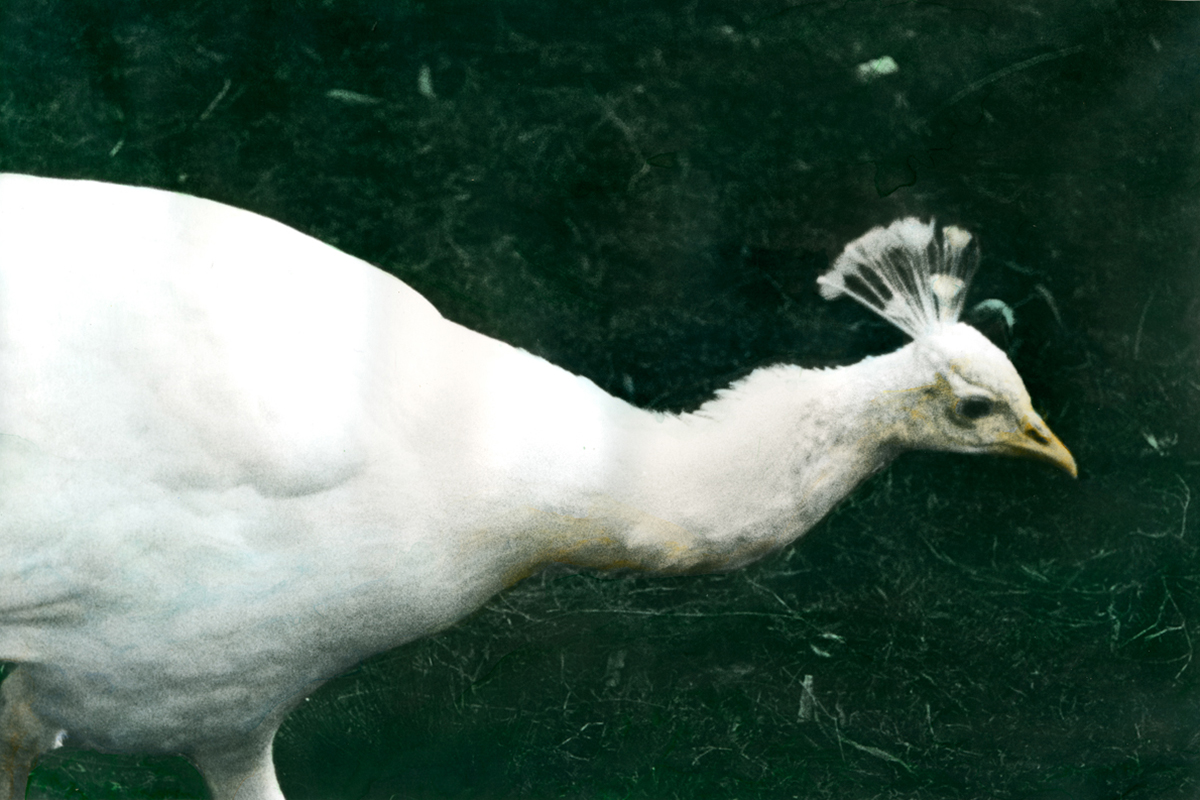
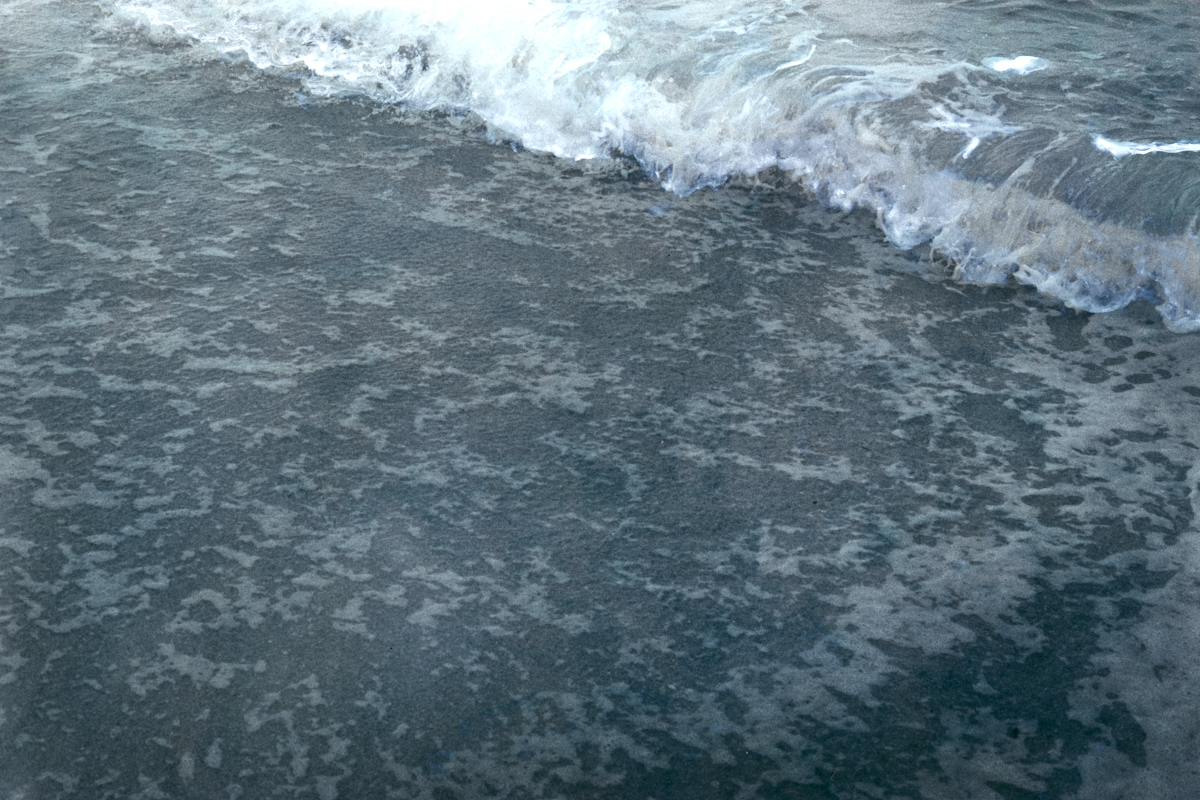
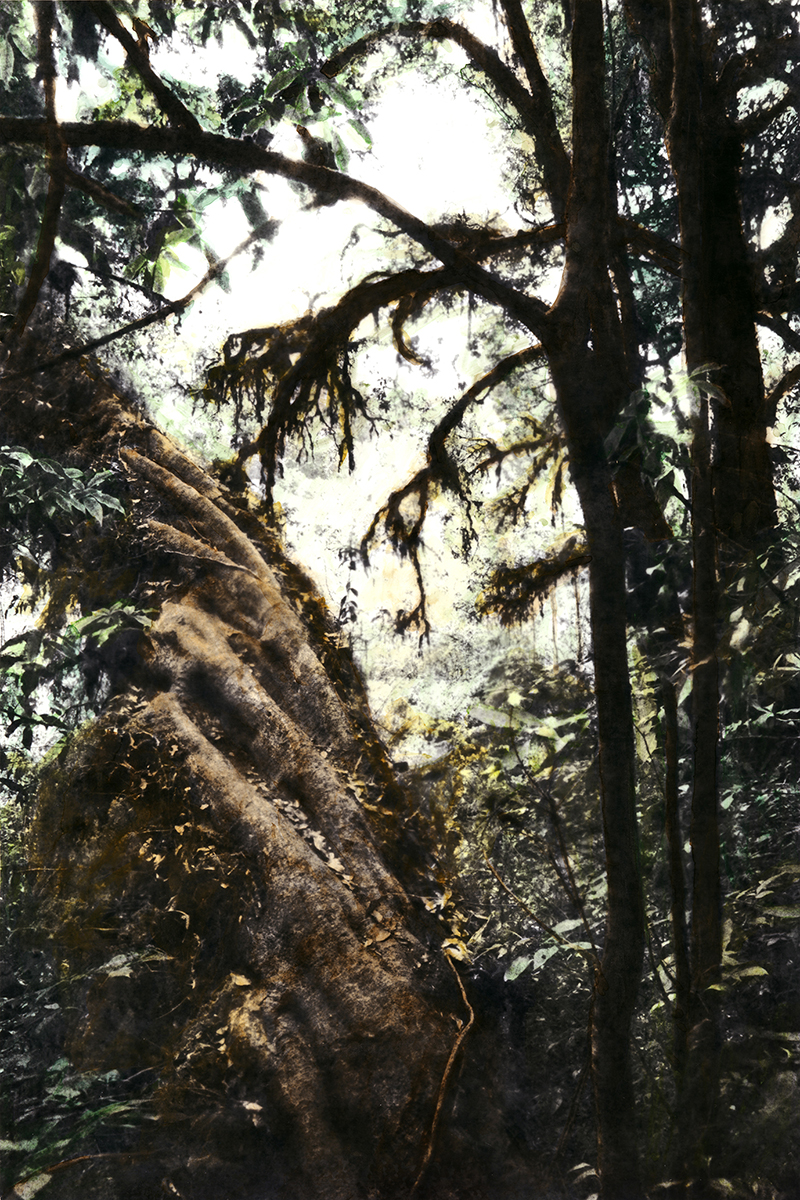
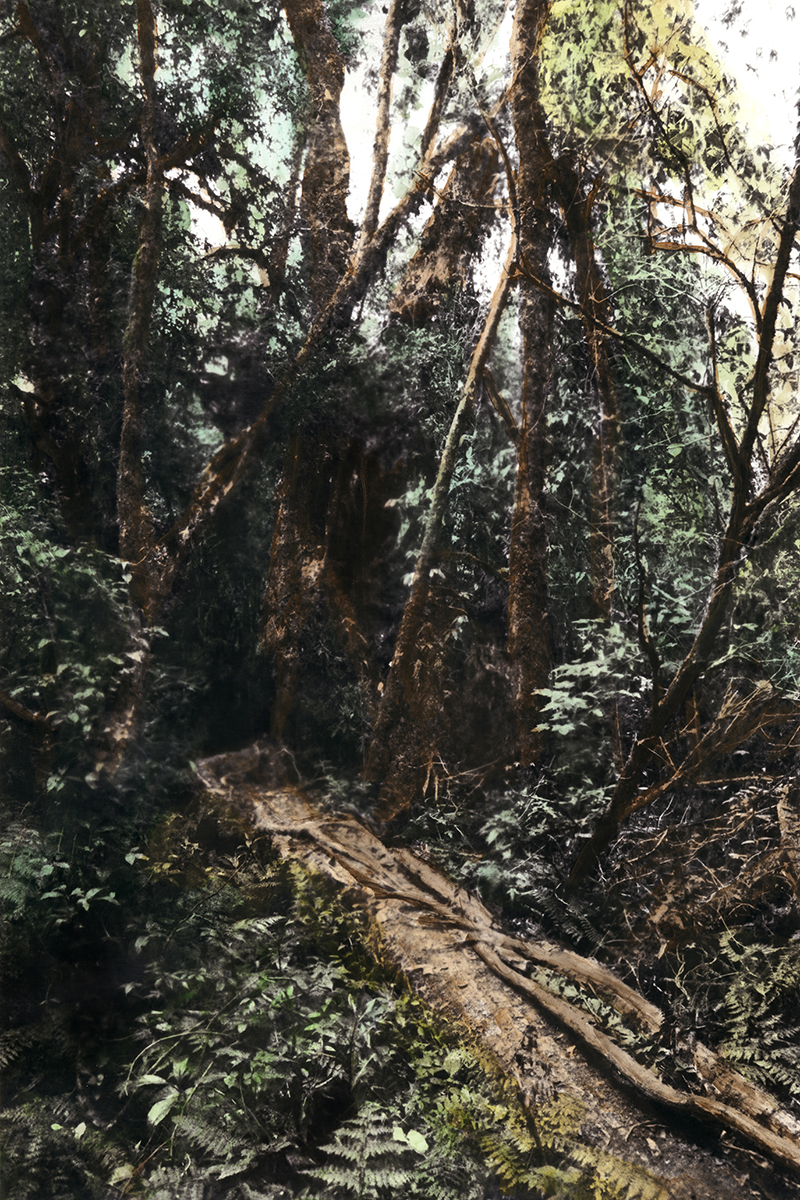
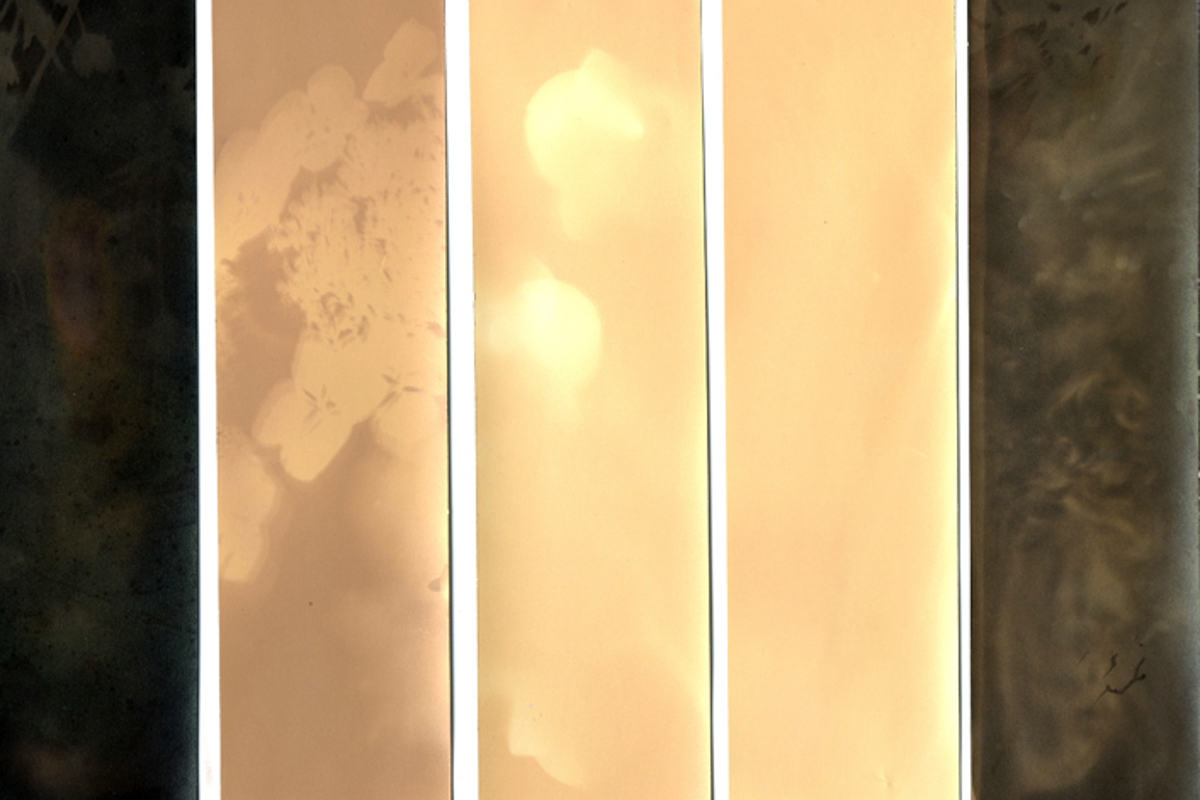

book
This book was created in collaboration with Masayo Matsuda for their duo
show at The Art Department in Amsterdam. Peter Schlemihl
travelled the world with the aid of seven-league boots. His body moved from a
tropical climate to a Mediterranean environment in a matter of minutes.
Intrigued to experience the same voyage the artists made extensive walks in botanical gardens.
title: Botanical Archive
photographers: Heleen Peeters, Masayo Matsuda
year: 2014
pages: 44
edition: 1 (artist copy)
exhibitions
– Bankgiro
Loterij Talent Collection (2014), Unseen Photo Fair, Amsterdam, The Netherlands
–
London Analogue
Festival (2014), OXO Tower, London, United Kingdom
–
Felix
&Foam (2014), Felix Meritis Amsterdam, The Netherlands
– The Atlas
of Peter Schlemihl (2014), The Art Department (Subbacultcha), Amsterdam, The
Netherlands
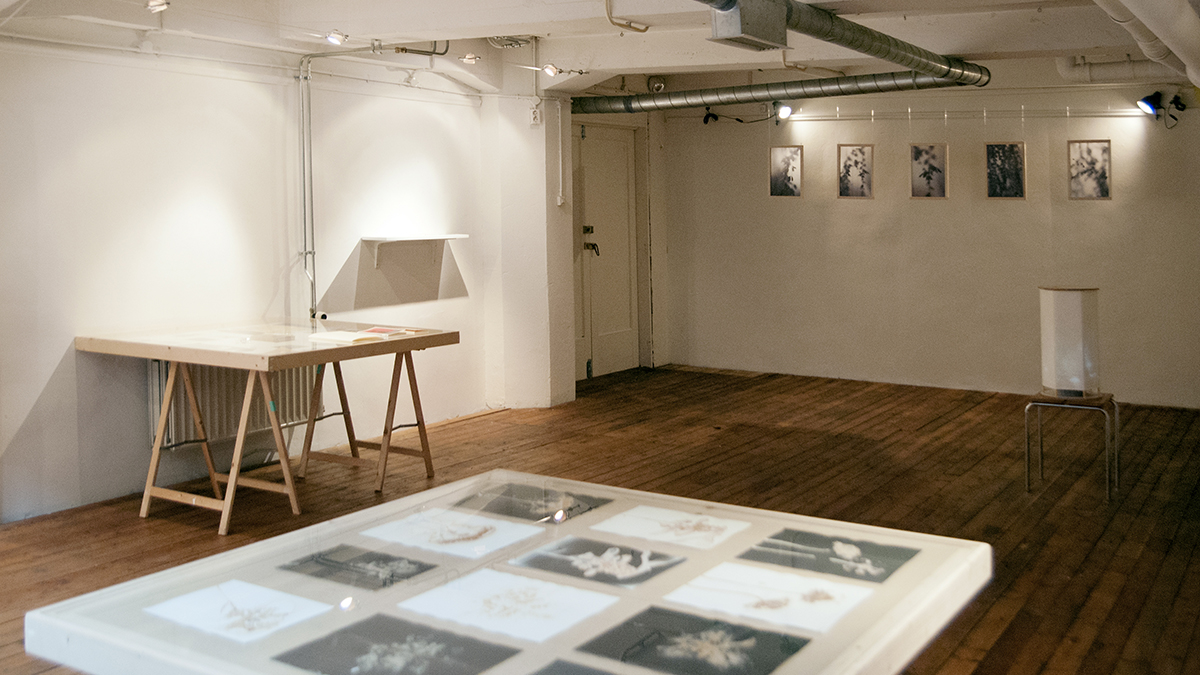
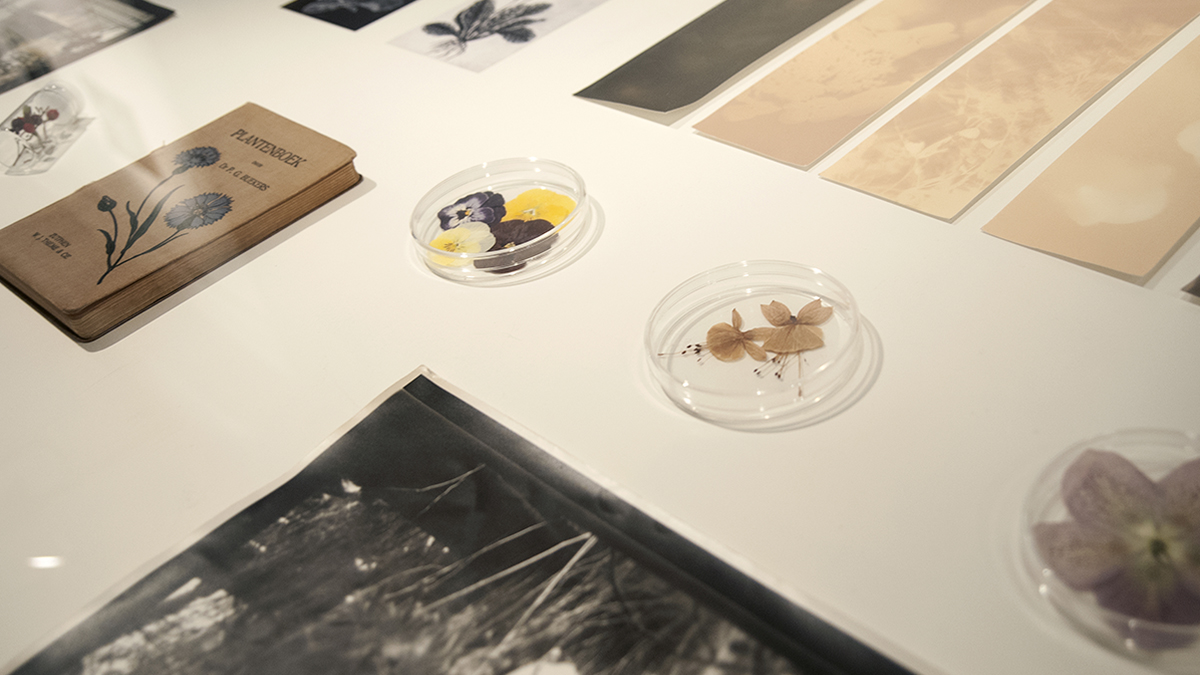
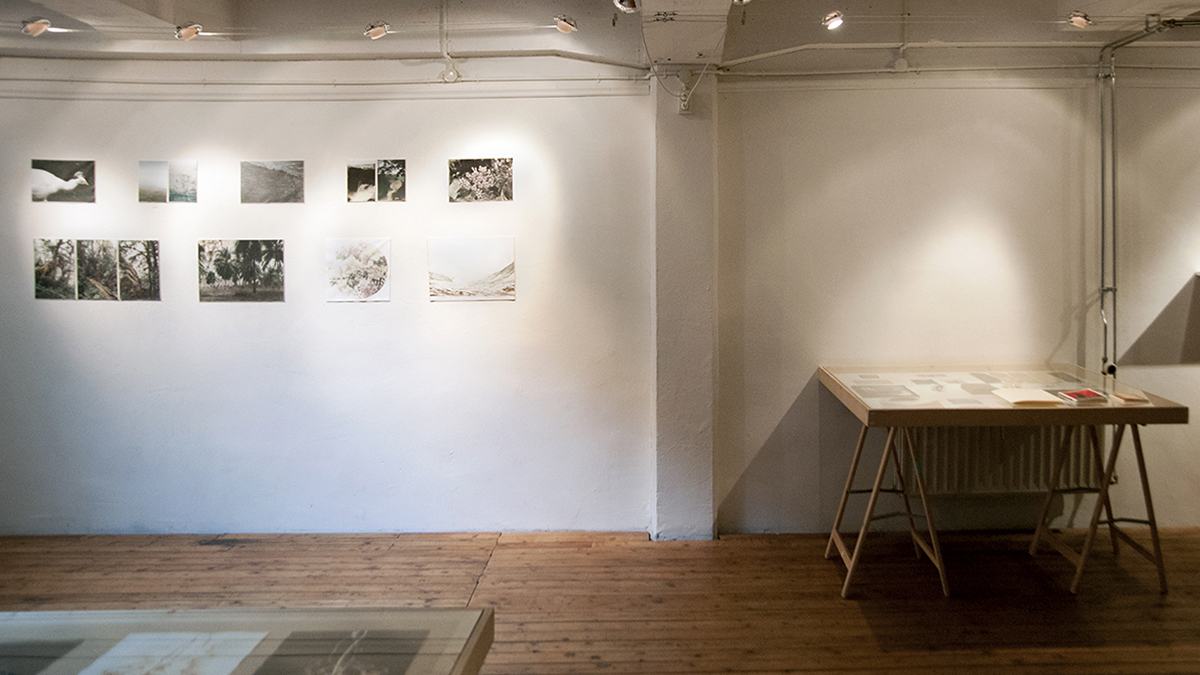

press
– Featured artist,
Kunstkalender, 2015 • view here
– Heleen Peeters - A World of Visions, Urbanautica, January 2015 • read here
– Heleen Peeters & Masayo Matsuda
Subbacultcha Magazine, May 2014 • read here
– Two flower still lifes are part of the Bankgiro Loterij Talent Collection 2014 • view here
– Featured artist,
Kunstkalender, 2015 • view here
– Heleen Peeters - A World of Visions, Urbanautica, January 2015 • read here
– Heleen Peeters & Masayo Matsuda Subbacultcha Magazine, May 2014 • read here
– Two flower still lifes are part of the Bankgiro Loterij Talent Collection 2014 • view here
– Heleen Peeters - A World of Visions, Urbanautica, January 2015 • read here
– Heleen Peeters & Masayo Matsuda Subbacultcha Magazine, May 2014 • read here
– Two flower still lifes are part of the Bankgiro Loterij Talent Collection 2014 • view here